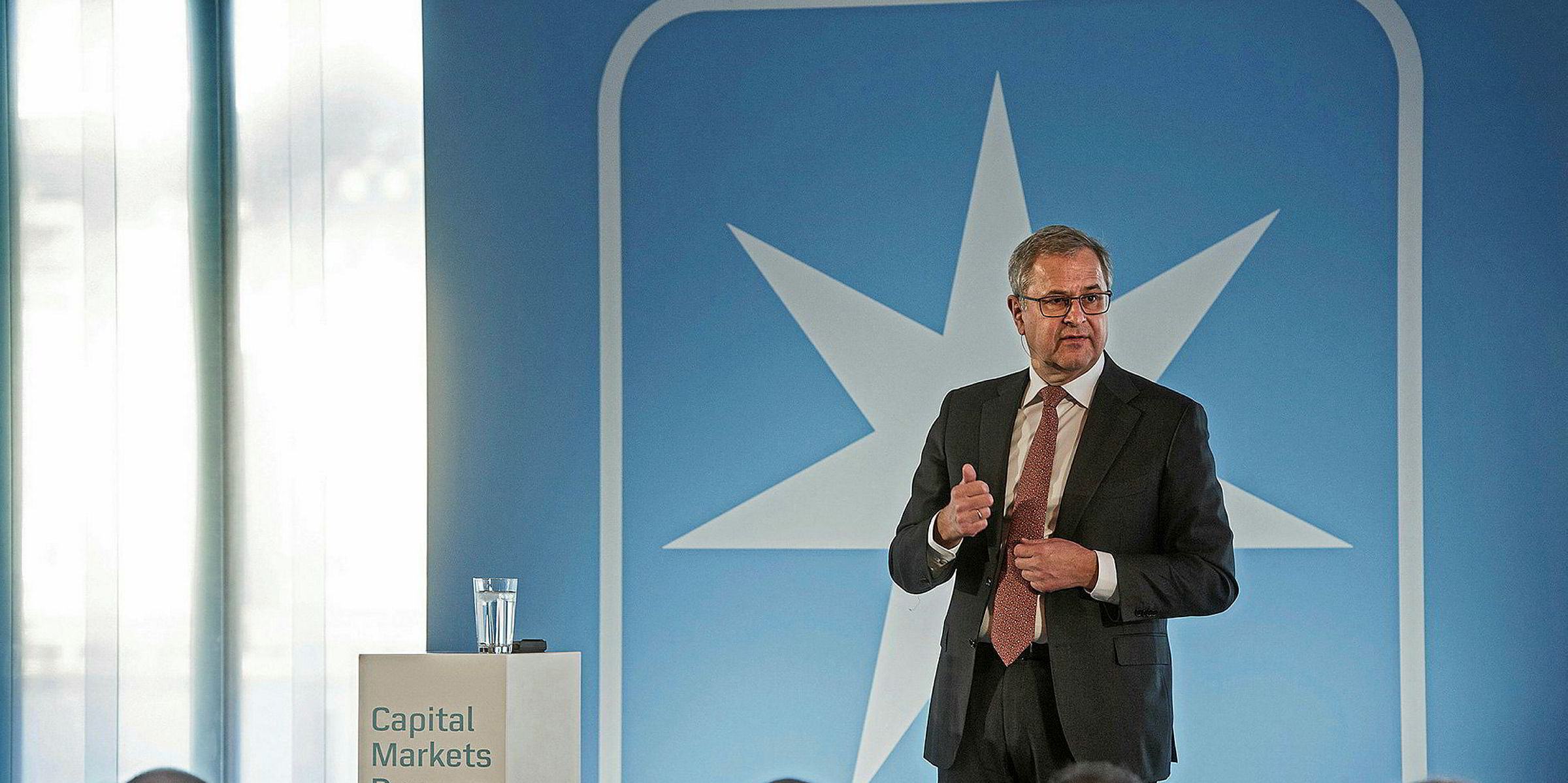Denmark's Maersk Oil Trading (MOT) has moved to secure more IMO 2020-compliant fuel supplies through a deal with Koole Terminals in Rotterdam.
The group said production of very low sulphur fuel oil (VLSFO) will take place at the petrochemical industrial distillation (PID) unit of Koole’s Botlek site in the heart of the key port.
Production is expected to cover between 5% and 10% of Maersk’s annual fleet fuel demand.
"The fuel manufacturing process allows Maersk to produce compatible low sulphur fuels that complies with the IMO 2020 sulphur cap implementation, reducing the need to rely on 0.1% price-based gasoil and fuel oil outside the ECA zones," said MOT head Niels Henrik Lindegaard.
"Our activities with Koole will be an important driver in ensuring stable, reliable services for Maersk’s customers during a potentially volatile period for global shipping.”
Koole Terminals CEO John Kraakman added: “Koole Terminals continues to explore opportunities to contribute to a sustainable society.
"One of the initiatives is to utilise our PID unit for producing environmentally friendly transportation fuels. We are proud to partner with Maersk and produce a low sulphur bunker fuel to support the reduction of sulphur emissions in order to reduce air pollution.”
First fuel deal since February
In February, MOT struck a deal to produce low-sulphur fuel oil (LSFO) in the US.
The agreement will see Maersk source crude for PBF Logistics (PBFX) to process at its CPI Operations terminal facility in New Jersey.
The deal enables MOT to supply IMO 2020-compliant 0.5% marine fuel to customers on the US east coast.
Annual production will be around 1.25m metric tonnes, about 10% of Maersk's yearly bunkers demand.
And last year, Maersk agreed to lease storage for 2.3m tonnes of 0.5% compliant fuel at the Vopak Europoort terminal in Rotterdam.
This was equivalent to 20% of Maersk’s annual fuel demand.
MOT then made a move into the Singapore bunkering sector by leasing oil storage space there.
Reuters cited sources as saying 120,000 cbm had been secured for fuel oil for six months.






